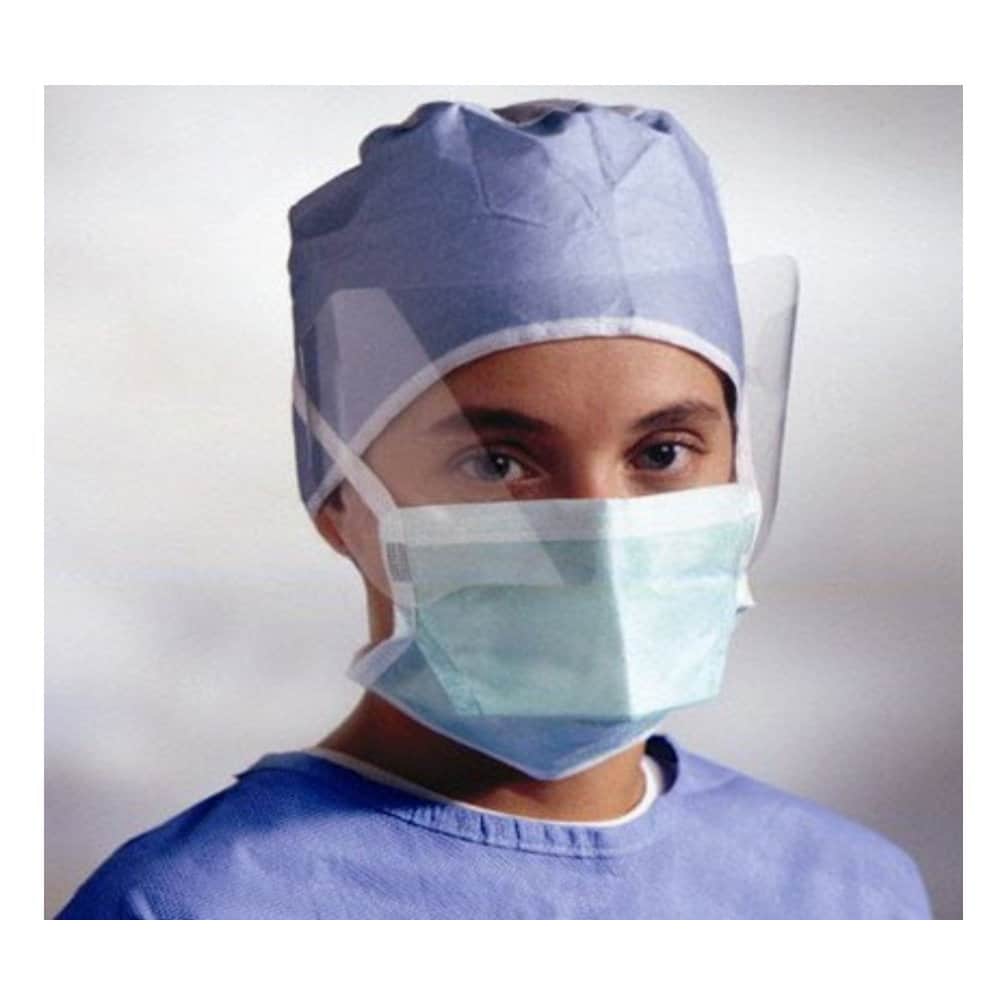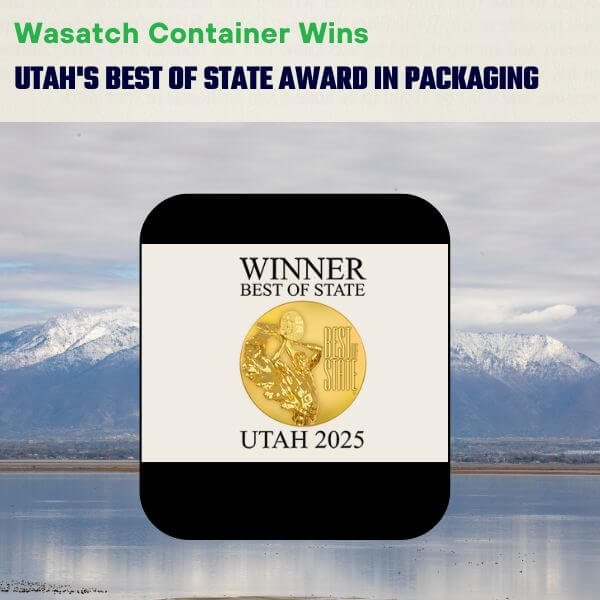One of the more disheartening aspects of the COVID-19 pandemic is the lack of personal face masks / protective equipment (PPE) for front-line healthcare workers. Warriors against the virus, these people need more and better facemasks, gowns, and other supplies. One of the more heartening aspects of the crisis is the quick pivot many Utah companies are making to supply those needs.
We caught up with Scott Marland of Wasatch Innovations and Brett Bangerter of Wasatch Container. The two companies are collaborating in manufacturing face masks, and recently were awarded a purchase order from the State of Utah to deliver 5,000 units by the end of April.
It’s essentially a one-piece product with integrated, closed-cell foam padding and an elastic strap. Depending on how it’s used, it’s a one-use product, or perhaps one that could be used for 48 hours and discarded. It’s not intended to be sanitized and put back into a high-contact environment.
What was the genesis of the idea for manufacturing a new face shield?
Scott: My wife Jenny is a physical therapist and we were in the kitchen talking about the shortage of PPE. I’m a mechanical engineer, a design guy. She said, “Why can’t you make something to help?”
I can’t sew to save my life, but I’ve worked with plastics in medical device design and outdoor products. So masks and gowns were out, but face shields were in my wheelhouse. Jenny makes doll clothes for the kid’s school charity auction and uses manila card stock in some of those patterns, so we just used card stock to make some early prototypes.
My nephew, who is sheltering in place in our home, is studying mechanical engineering at the University of Utah. He started doing CAD (computer aided design) based on those first attempts. Then we started printing prototypes. We tested different versions – Are they easy to put on and take off? Can you wear glasses under the face shield without it fogging up? I even had our kids involved to see if the prototypes fit different head sizes.
Once you had a workable prototype, how did you move to manufacturing?
Scott: Initial design to a workable prototype took from Saturday morning to Tuesday afternoon. I knew Brett Bangerter at Wasatch Container from my previous work at the BioInnovations Gateway, a life science business incubator in South Salt Lake. I knew Wasatch Container could take the prototype to the finished-product stage.
Brett: Wasatch Container is a 25-year-old company based in North Salt Lake and we specialize in custom fabrication and printing of boxes, foam structures, and wood crates. We produce the boxes for Bohemian Brewery and foam inserts for L3 Communications, among others. We just won “Best in State” in the category of Printer/Publishing Manufacturer.
I’ve known Scott for more than a decade. We get a lot of calls from people who think they have a great idea. With Scott I knew it would work. I took the request to our owner and he said, “We’ve got to do this. Let’s make a difference.”
Scott: They were quick. We spent last week running tests on the manufacturing line and doing a lot of tweaking to get it right. When we got a working model off the production line, I gave it to my neighbor, who is a paramedic. He wore it all day. It was comfortable, durable, and didn’t fog up. “I want more of these,” he said.
Brett: We’re using the foam manufacturing line to produce the product, and then we’ll assemble it, bag it, and box it. We helped Scott refine his prototype, and we’re on track to deliver the order to the state. The biggest hurdle was getting samples of the hard plastic to use in the face shield. It took us a week to source something we could then test on the foam cutting machine. Frankly, sourcing the hard plastic is still the biggest obstacle…it’s a very high-demand product right now.
How did you secure a P.O. from State Purchasing?
Scott: During all these iterations, as we were getting closer to a finished product, I reached out to Clark Cahoon, the life sciences director at the Governor’s Office of Economic Development. Through him, I got connected to Stephanie Frohman at EDCUtah, who is serving as the lead for In-Utah Manufacturing for the Medical Supplies Work Group under Utah’s Unified Command for Coronavirus Response. She’s been out beating the bushes for companies to adapt production to PPE, and worked with State Purchasing to quickly to evaluate the product and issue a P.O.
In light of overall trends, where do you see the product going from here?
Scott: I think the big manufacturers are ramping up production, and will get their products into the market soon, particularly in urban areas. But there are a lot of small regional hospitals and clinics that have a hard time competing on the open market with the big health systems. I’m hoping this and other products can make their way to those smaller organizations, where there’s real need.
I’d also like to get this in front of the grocery store chains and convenience stores. The workers stocking shelves and at the check-out stands need protection, and this could help.
If you’re not getting rich, what are you getting out of this?
Scott: It’s been fun to work on it, and it’s a good feeling that we’re making a difference. Wasatch Container has really gotten behind this project. Their attitude hasn’t been, “How do we make money on this?” It’s been, “How can we help?”
Brett: It’s not a big order by any means, but we’re jumping in because it’s the right thing to do. We’re the kind of company that when people work with us, they stick with us for a long time. And I think it’s a viable product over the long term.
For more information, visit www.wasatchcontainer.com
Additional Information – EDCUtah’s Stephanie Frohman shared that the State has issued $1.5 million in purchase orders with more than a dozen companies from Weber to Washington County.
Stephanie points us to a good explanation of what the is (a statewide intake and distribution network) and where PPE is going (Utah hospitals, county health departments, etc).




